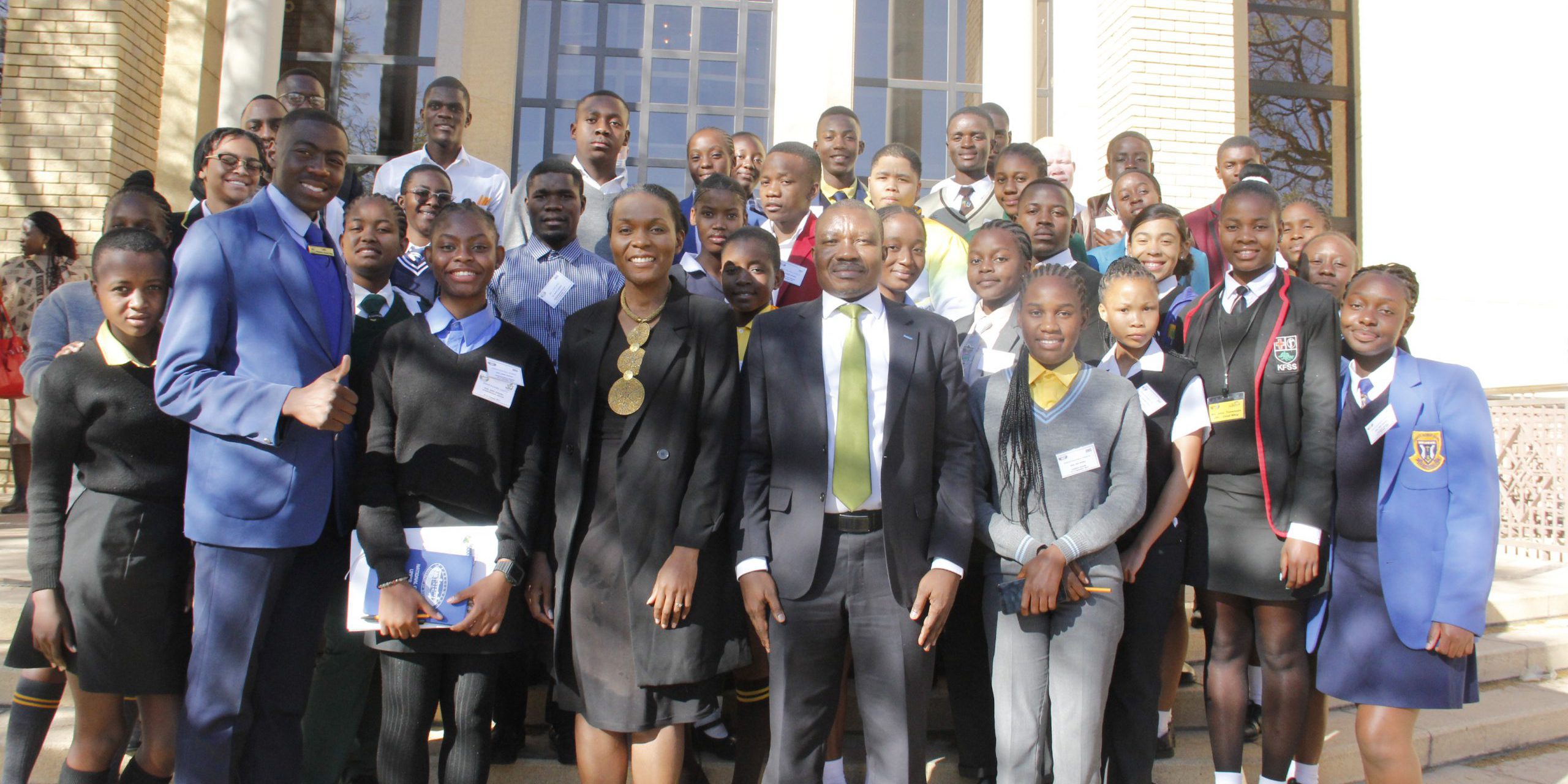Chairperson of the National Council, Honourable Lukas Sinimbo Muha officially opened the 2nd Session of the 3rd Junior National Council (JNC) today (11 September 2023) in the National Council Chamber at Parliament. In his address, the Presiding Officer expressed that there is a common perception in today’s world that the young generation is apathetic towards politics and governance, adding that “being future leaders, the youth cannot afford to be less-interested in these activities and in the development of the country”. Hon. Muha further remarked that JNC members are privileged to get the opportunity to learn about democracy and the role and function of Parliament and was hopeful it would further help for many to become well informed citizens, able to actively participate in the appropriate decision-making structures of the country.
Kick-starting the debate on the floor was a pertinent question facing the country, “How Namibia Can Use the Ongoing Discovery of Mineral Resources to Advance Industrialisation and Economic Development”. JNC Member, Hon. Natasha Shininge from the Kavango East Region in her contribution stated that mining activities had the potential to unlock economic activities such as increase revenue and create jobs as well as increase the country’s investment attraction internationally. However, the young MP did also highlight the potential threats to the environment, particularly to the aquifer system of the Kavango river Basin. “If the ground water is contaminated, this could affect communities along the river whose livelihoods depend on it as well as endanger the many species living along the river”, said Hon. Shininge.
Another youthful Member, Hon. Uetuesapi Uhongora from Omaheke Region stated that Namibia needs to strike a balance between other countries with regard to the trade of minerals. Hon. Uhongora said for that to be achieved, “Namibians need to be educated so that the country stops importing human resources for value addition to our own resources”.
Hon Muha implored on the youth to be good ambassadors in promoting and facilitating broader awareness among all youths, about community-issues and the processes through which those issues can be addressed. Chairperson of the Junior National Council, Hon. Anna Andimba echoed the sentiments of the Chairperson, stating that “the Junior National Council has always been an embodiment of youth empowerment, fostering leadership, and offering a platform to amplify the voices and perspectives of young individuals. Our mission, as we embark on this exciting journey once again, remains unchanged – to cultivate a collective consciousness towards sustainable change and growth within our communities”, Hon. Andimba stated.
Today’s activities ended with an address and interactive session with Presidential Advisor, Ms. Daisry Mathias, who discussed the second theme of the sitting, “Nation Building is a Shared Responsibility: The Role of a Namibian Youth, the Government and all Stakeholders”. The session is expected to conclude tomorrow, 13th September, and will be graced by Hon. Emma Kantema-Gaomas, Deputy Minister: Ministry of Sport, Youth and National Service who will speak on “The Role of a Namibian Youth”.
This year’s Junior National Council was made possible with the generous assistance of the Embassy of the Peoples Republic of China in Namibia.
ABOUT THE JNC: Inaugurated in 2017, the JNC is the mouthpiece of school-going youth in Namibia through which they voice their opinions and debate matters of national and international concern. The youth body was formalised by way of a motion passed by the National Council in 2013. Its composition mirrors that of its senior counterparts, with three members from each of Namibia’s 14 Junior Regional Councils, totalling the 42 members of the Junior National Council. The Junior National Council is one of many initiatives of the National Council towards achieving its strategic goal of “Enhancing Public Participation in the Law-Making Process.” This programme further aims to develop basic understanding of parliamentary functions and practices, legislative procedures as well as the importance of review, oversight and law making amongst the Namibian society, particularly the youth.







